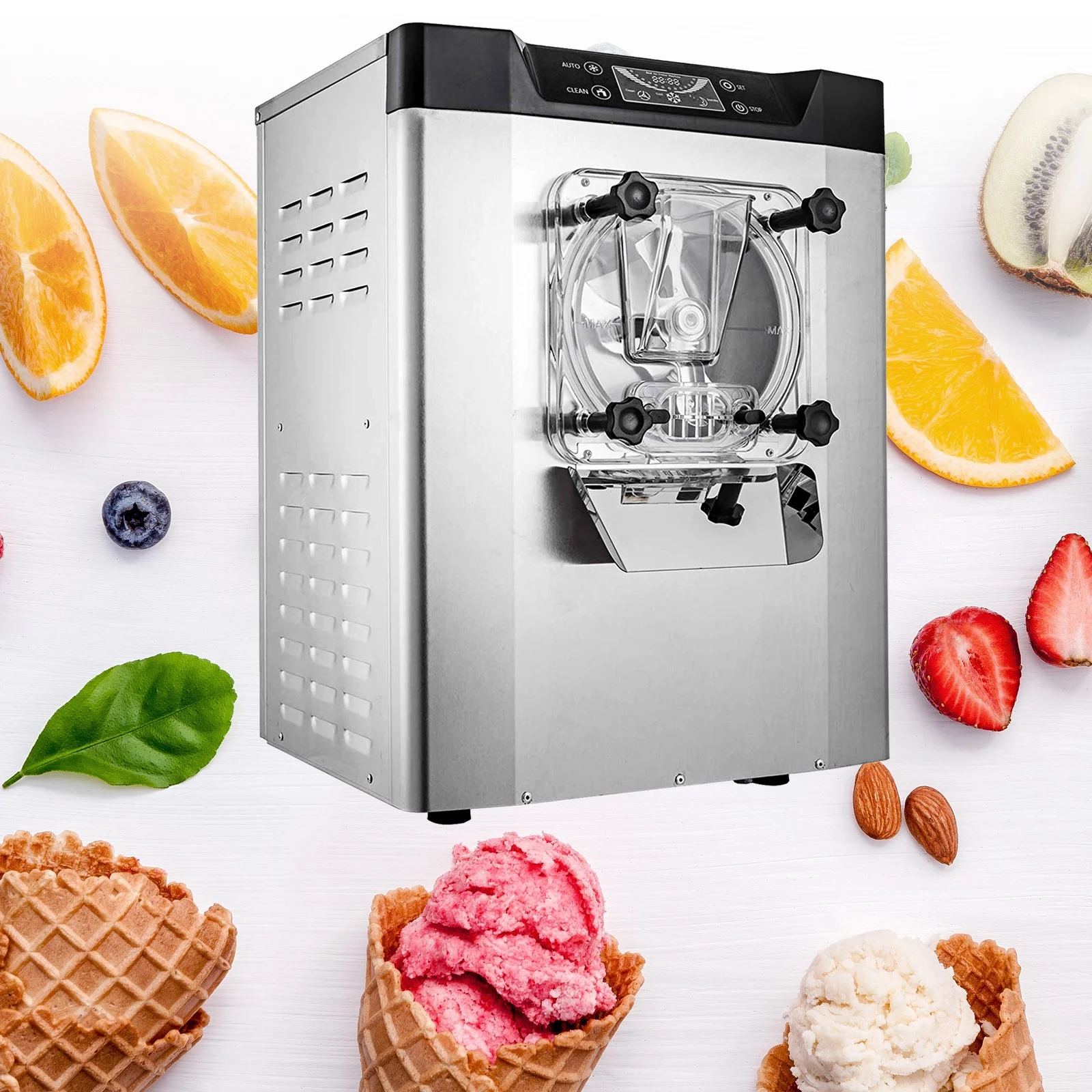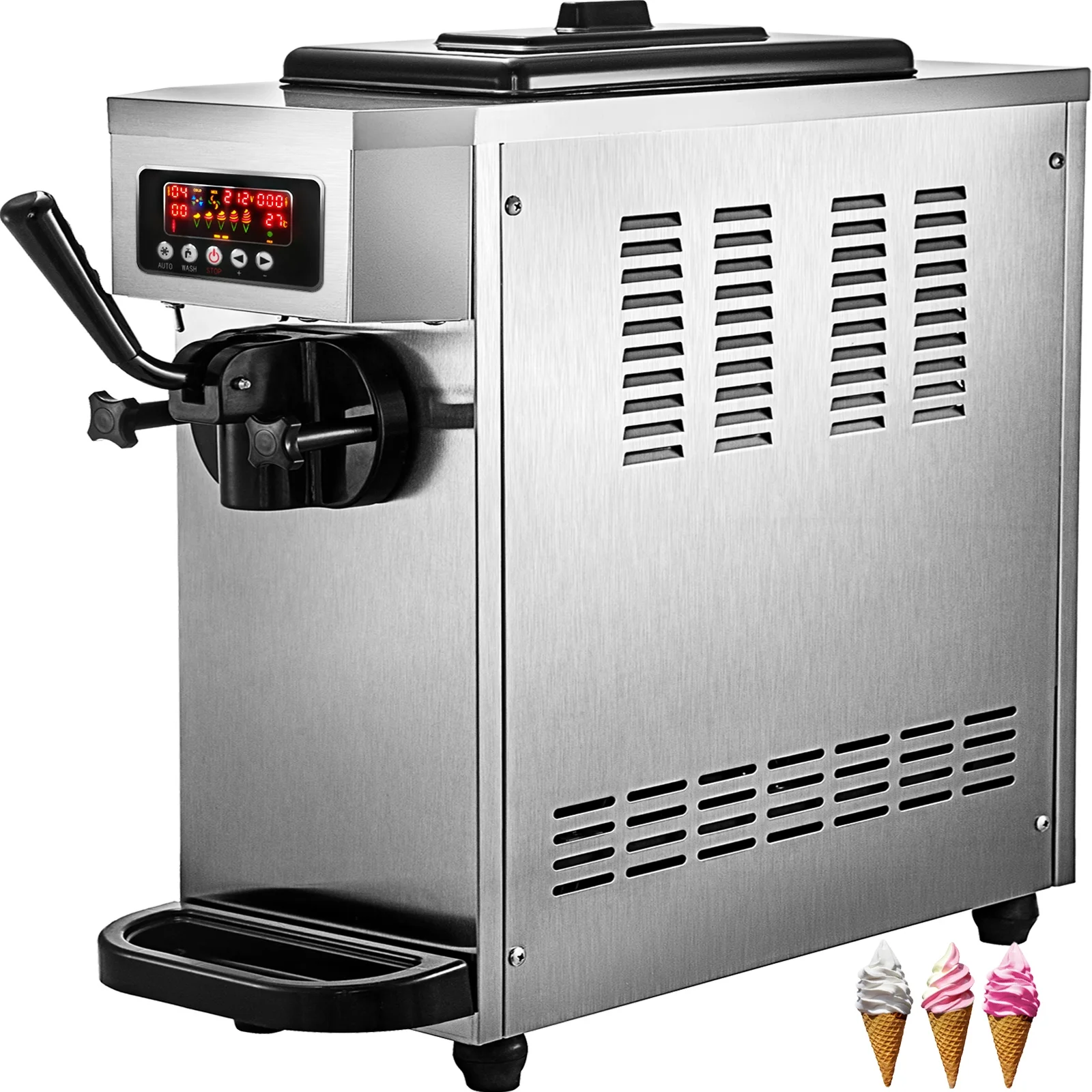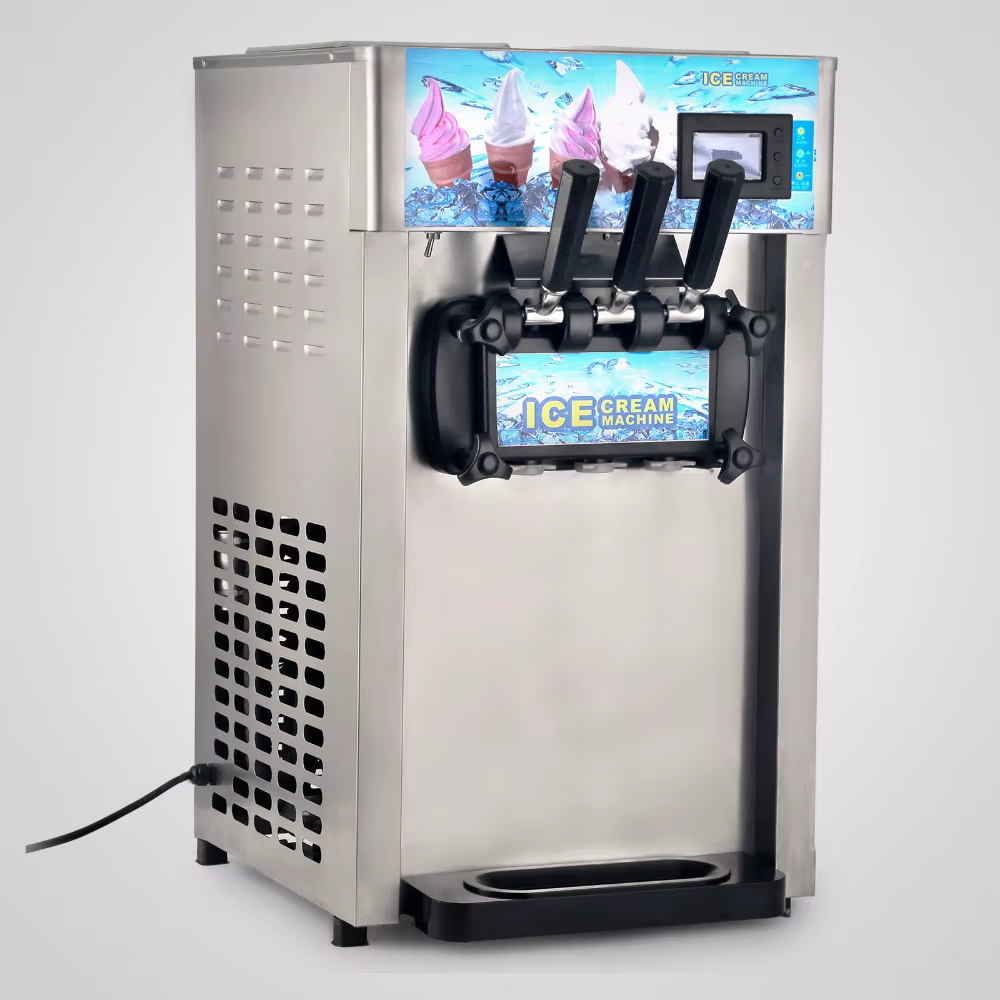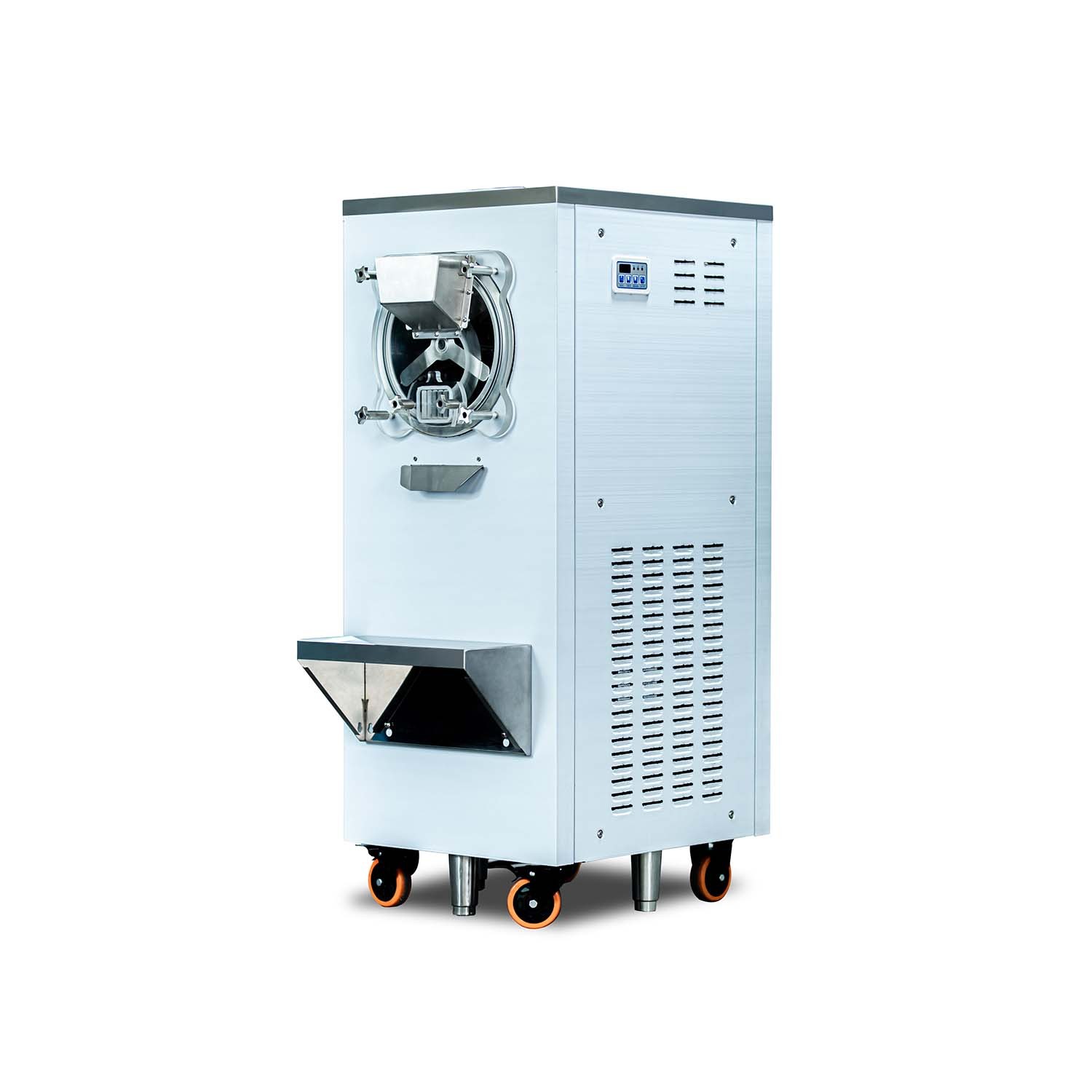In the bustling world of foodservice, offering high-quality desserts can set your business apart from the competition. One essential piece of equipment that can help you achieve this is a commercial ice cream maker. Whether you’re running a busy restaurant, a trendy gelato shop, or a vibrant ice cream parlor, investing in a reliable commercial ice cream maker can enhance your menu, improve customer satisfaction, and boost your revenue. This comprehensive guide explores everything you need to know about commercial ice cream makers, from choosing the right model to maintaining it for long-term success.
Understanding the Importance
Why a Commercial Ice Cream Maker is Essential for Your Business
A commercial ice cream maker is not just another appliance; it’s a cornerstone of any dessert-centric establishment. With the ability to produce large batches of ice cream efficiently, these machines ensure that you can meet customer demand without compromising on quality. Moreover, having an in-house ice cream maker allows you to experiment with unique flavors and tailor your offerings to your clientele’s preferences, giving your business a competitive edge.
The Impact of High-Quality Ice Cream on Customer Satisfaction
High-quality ice cream can significantly enhance the overall dining experience for your customers. Smooth, creamy textures and rich flavors can turn a simple dessert into a memorable part of the meal. When customers enjoy your ice cream, they are more likely to return and recommend your business to others. Furthermore, offering premium ice cream can justify higher price points, improving your profit margins.
Key Features to Look for
Capacity and Production Speed
When selecting a commercial ice cream maker, it’s crucial to consider the machine’s capacity and production speed. These factors determine how much ice cream you can produce within a given timeframe, directly impacting your ability to serve a large number of customers efficiently. Look for models that offer adjustable batch sizes and fast freezing times to accommodate varying levels of demand, especially during peak hours.
Durability and Build Quality
Commercial environments can be demanding, with equipment running continuously for extended periods. Therefore, the durability and build quality of your ice cream maker are paramount. Stainless steel components, robust motors, and high-quality refrigeration systems are indicators of a machine built to withstand heavy use. Investing in a well-constructed ice cream maker reduces the likelihood of breakdowns and extends the lifespan of your equipment, ensuring consistent performance and reliability.
Ease of Use and Maintenance
Ease of use is another critical consideration when choosing a commercial ice cream maker. Intuitive controls, programmable settings, and straightforward cleaning procedures can save your staff time and reduce the risk of errors. Additionally, regular maintenance is essential to keep the machine functioning optimally. Look for models that are easy to disassemble and clean, and consider those with self-cleaning features to streamline your operations further.
Top Types of Commercial Ice Cream Makers
Batch Freezers: Versatility and Control
Batch freezers are a popular choice for many businesses due to their versatility and control over the ice cream-making process. These machines allow you to make small to medium-sized batches of ice cream, offering the flexibility to experiment with different recipes and flavors. Batch freezers typically come with adjustable settings, enabling you to customize freezing times and temperatures to achieve the desired consistency. This level of control is ideal for artisanal ice cream makers who prioritize quality and creativity.
Continuous Freezers: High-Volume Production
For establishments that require high-volume ice cream production, continuous freezers are the preferred option. These machines are designed to produce large quantities of ice cream continuously, making them ideal for busy restaurants, cafeterias, and large ice cream shops. Continuous freezers operate with a constant flow of ingredients, ensuring that you can meet high demand without frequent stops for batch changes. While they tend to be more expensive than batch freezers, the increased production capacity can significantly enhance your business’s efficiency and profitability.
Soft Serve Machines: Quick and Convenient
Soft serve machines are an excellent choice for businesses looking to offer quick and convenient ice cream options. These machines produce smooth and creamy soft serve ice cream that can be dispensed directly to customers. Soft serve machines are typically easier to operate and maintain compared to other types of ice cream makers, making them suitable for establishments with limited kitchen space or staffing. Additionally, they can be used to create a variety of frozen treats, such as milkshakes, smoothies, and ice cream cones, expanding your menu offerings.
Maintenance Tips
Regular Cleaning and Sanitization
Maintaining a clean ice cream maker is crucial for ensuring the quality and safety of your products. Regular cleaning and sanitization prevent the buildup of bacteria, mold, and other contaminants that can affect the taste and texture of your ice cream. Follow the manufacturer’s guidelines for cleaning the machine, and ensure that all removable parts are thoroughly washed and dried after each use. Implement a strict cleaning schedule to maintain hygiene standards and extend the lifespan of your equipment.
Routine Inspections and Repairs
Routine inspections are essential for identifying and addressing potential issues before they escalate into costly repairs or downtime. Regularly check the machine’s components, such as motors, seals, and refrigeration systems, for signs of wear and tear. Address any minor problems promptly to prevent them from affecting the performance and efficiency of your ice cream maker. Additionally, keep a record of maintenance activities and repair history to track the machine’s condition over time and plan for future maintenance needs.
Proper Storage and Handling
Proper storage and handling of your commercial ice cream maker can significantly impact its longevity and performance. When not in use, ensure that the machine is stored in a clean, dry environment to protect it from moisture, dust, and other contaminants. Avoid overloading the machine or using it beyond its intended capacity, as this can cause strain on its components and lead to premature failure. Train your staff on the correct operating procedures and handling techniques to minimize the risk of accidental damage and ensure the machine remains in optimal condition.
Enhancing Your Ice Cream Business with Customization and Innovation
Offering Unique Flavors and Mix-Ins
One of the key advantages of having an in-house commercial ice cream maker is the ability to create unique flavors and mix-ins that set your business apart. Experimenting with innovative ingredients and flavor combinations can attract adventurous customers and generate buzz around your offerings. Consider seasonal flavors, local ingredients, or health-conscious options to cater to a diverse customer base. By continually expanding and refining your ice cream menu, you can maintain customer interest and encourage repeat visits.
Incorporating Technology and Automation
Incorporating technology and automation into your ice cream-making process can streamline operations and enhance consistency. Modern commercial ice cream makers often come equipped with advanced features, such as programmable controls, automated mixing, and precise temperature regulation. These technologies not only simplify the production process but also ensure that each batch of ice cream meets your quality standards. Additionally, integrating your ice cream maker with inventory management systems can help you track ingredient usage and optimize your supply chain.
Marketing and Branding Your Ice Cream Offerings
Effective marketing and branding are essential for promoting your ice cream offerings and attracting customers. Highlight the unique aspects of your commercial ice cream maker, such as its capacity, innovative features, or the quality of the ice cream it produces, in your marketing materials. Use social media, your website, and in-store displays to showcase your unique flavors, behind-the-scenes production processes, and customer testimonials. Building a strong brand identity around your ice cream can create a loyal customer base and differentiate your business in a competitive market.
Cost-Benefit Analysis of Investing in a Commercial Ice Cream Maker
Initial Investment and Financing Options
Purchasing a commercial ice cream maker represents a significant initial investment for your business. However, this investment can yield substantial returns through increased sales and enhanced product offerings. To manage the financial impact, explore various financing options, such as equipment loans, leasing, or rental agreements. Compare the terms and conditions of different financing methods to determine the best fit for your budget and business needs.
Long-Term Savings and ROI
While the upfront cost of a commercial ice cream maker may be high, the long-term savings and return on investment (ROI) can be considerable. By producing your own ice cream, you can reduce the costs associated with purchasing pre-made desserts and eliminate intermediaries. Additionally, owning an ice cream maker allows you to control production costs by sourcing ingredients directly and optimizing recipes for cost efficiency. Over time, the increased revenue from higher sales volumes and premium pricing can offset the initial investment and contribute to a positive ROI.
Enhancing Business Reputation and Customer Loyalty
Investing in a high-quality commercial ice cream maker can enhance your business’s reputation for offering superior desserts. Consistently delivering delicious, fresh ice cream builds customer trust and loyalty, encouraging repeat business and positive word-of-mouth referrals. A strong reputation for quality can also attract new customers who are willing to pay a premium for your products, further boosting your revenue and market presence.
Future Trends in Commercial Ice Cream Making
Sustainable Practices and Eco-Friendly Machines
As consumer awareness of environmental issues grows, sustainability is becoming a key trend in the foodservice industry. Commercial ice cream makers are evolving to incorporate eco-friendly practices, such as using energy-efficient components, reducing water usage, and utilizing recyclable materials. Investing in a sustainable ice cream maker not only helps reduce your business’s environmental footprint but also appeals to eco-conscious customers who value responsible business practices.
Automation and Smart Technology Integration
The integration of smart technology and automation is revolutionizing the commercial ice cream-making process. Modern machines are equipped with smart sensors, IoT connectivity, and advanced software that enables remote monitoring, predictive maintenance, and real-time data analysis. These technologies enhance operational efficiency, reduce manual intervention, and provide valuable insights into production processes and inventory management. Embracing these advancements can position your business at the forefront of innovation and improve overall performance.
Customization and Personalized Ice Cream Experiences
Personalization is a growing trend in the foodservice industry, and the commercial ice cream sector is no exception. Customers increasingly seek customized ice cream experiences, such as tailored flavors, mix-ins, and presentation styles. Commercial ice cream makers are adapting to this demand by offering greater flexibility and control over the ice cream-making process. Techniques like nitrogen freezing, modular add-ins, and customizable recipe settings allow you to create personalized ice cream offerings that cater to individual preferences, enhancing customer satisfaction and loyalty.
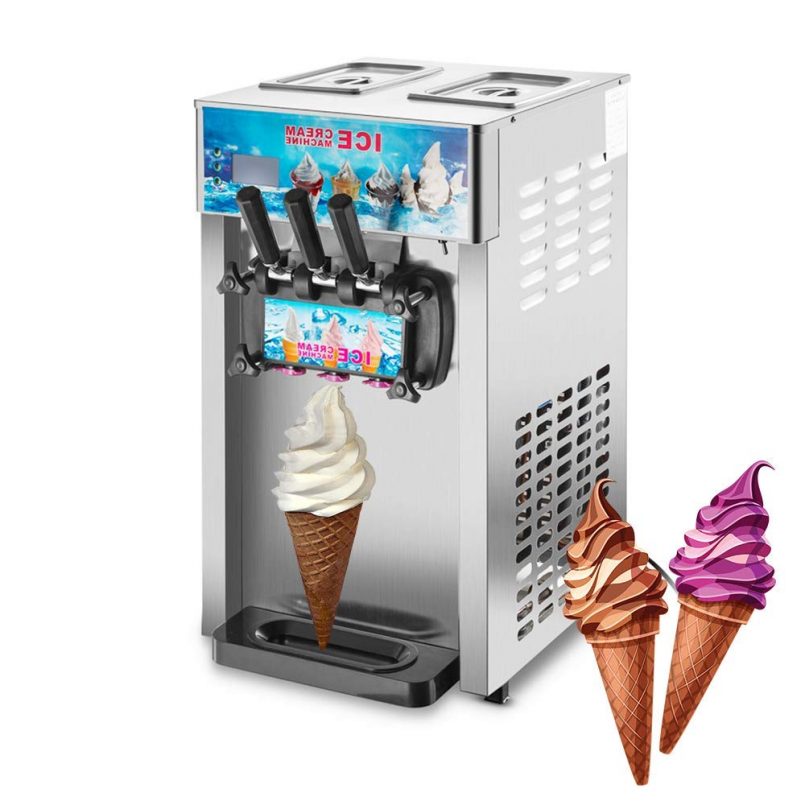 Conclusion
Conclusion
Choosing the right commercial ice cream maker is a pivotal decision that can significantly influence the success of your dessert offerings and overall business performance. By understanding the key features, types, and maintenance requirements of commercial ice cream makers, you can make an informed investment that aligns with your business goals and operational needs. As the dessert industry continues to evolve, staying ahead of trends and embracing innovation will ensure that your ice cream offerings remain competitive and appealing to your customers. Ultimately, a high-quality commercial ice cream maker is not just an equipment purchase but a strategic investment in the future growth and reputation of your business.


